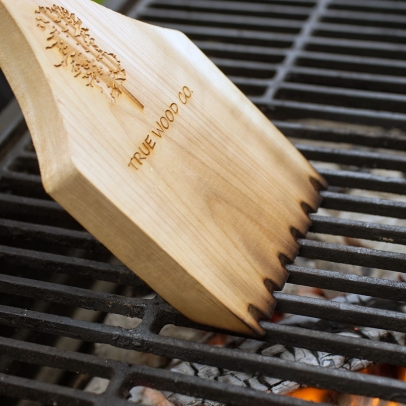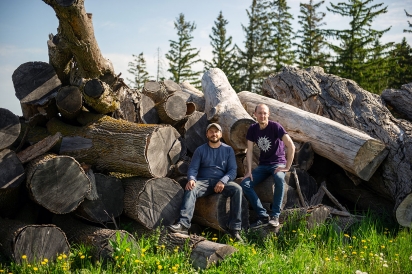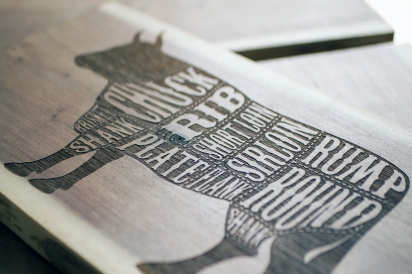Wood for the Grill
Open the hood, turn on the gas, switch the knobs to high and click the starter. Spark — and flush go the flames. Your barbecue is lit and you’re getting ready to grill, marking the start of a summer ritual. But before the meat hits the flame, many of us will reach for the wire bristle brush— tattered, black and severely worn — hanging from the side of the barbecue, to scrape the grill. Most of us won’t think twice before using those worn-down bristles, which can sound like nails on a chalkboard. But the unpleasantness doesn’t stop there, there is the risk that one of those metal strands ends up in your food.
For Andrew Maidanik, co-founder and maker at True Wood Co., the very thought of a bristle getting stuck in his food made him change the way he grilled.
At least nine people ingested detached metal bristles in 2017, according to the Standards Council of Canada, which issued a request for proposal to develop a new national standard for barbecue brushes. Once completed, there will be guidelines to define materials, construction, labelling and testing procedures. Health Canada has also received numerous reports of metal bristle injuries, but opted against banning the barbecue brushes last year, leaving brush safety in the hands of industry and consumers.
Maidanik knew he had to come up with something safer than a metal brush not only for himself, but for his kids, too.
A photographer by trade, Maidanik is also a woodworking hobbyist. When he and his friend, Igor Eidelman bought a sawmill three years ago to create furniture and products from salvaged wood, barbecue scrapers were the first consumer product they made. The scraper is essentially a wooden paddle that customizes itself to the grill by forming grooves to help clean food debris. The more than 50-centimetre handle is the longest on the market, Maidanik says, making the scraper one of the safest to use.
True Wood Co. uses lumber from storm-damaged trees and felled timber that have been cleared to make way for construction. For the scrapers, they settled on Red Western Cedar, one of the softest wood varieties available, often used for cedar grilling planks. Maidanik decided on the sustainably harvested wood from British Columbia because Ontario Eastern Cedar is hard to come by and not as good a wood, he explains. Plus, the barbecue scrapers smell great.
The sawmill is a mobile machine, “we can take it anywhere we want and set up in minutes,” Maidanik says. He and his business partner rent part of a farm in Stouffville, Ont., to store the sawmill when not in use, but most of the production is done in Newmarket.
After large storms, Maidanik and his team pick up trees themselves. City staff and arbourists also contribute to a growing stash. In addition to the barbecue scrapers, which have become popular with local butcher shops such as Cumbrae’s and Kloster’s, the company produces a full line of untreated and chemical-free wood products including charcuterie boards and coasters, all made from salvaged lumber such as black walnut and ash.
Maidanik’s favourite wood to work with is walnut. The “grain and colour is the most beautiful among local species,” he says. “It has been the No. 1 choice for high-end furniture and wooden accessories for centuries here and in Europe.”
For now, with his wooden scraper in hand, Maidanik knows he can rest easy while grilling his favourite shish kebabs this summer.
True Wood Co.
truewoodco.com | 416.417.6515 | @truewood_co







